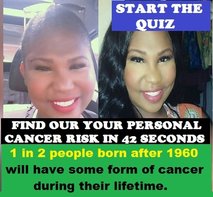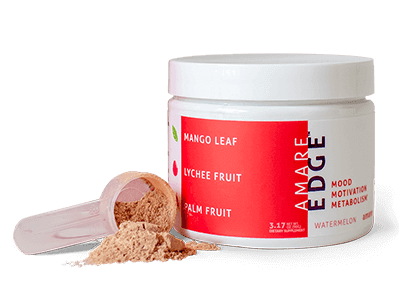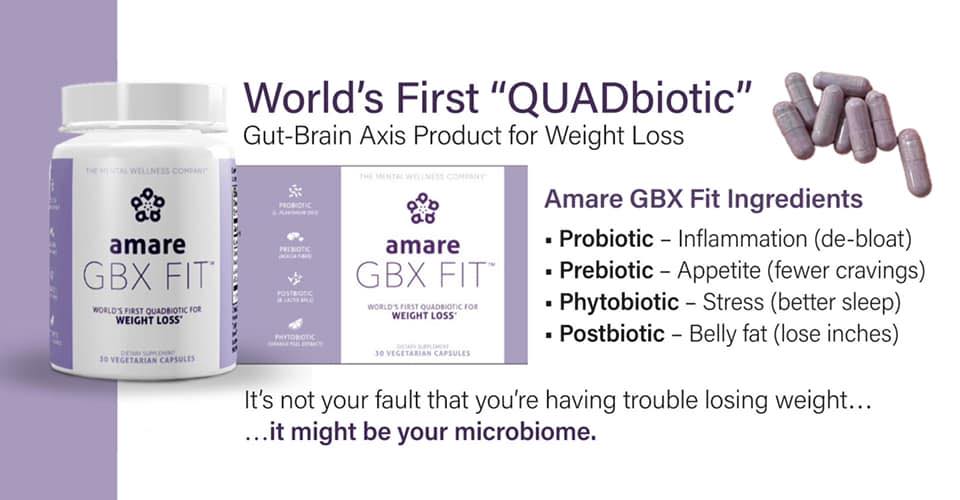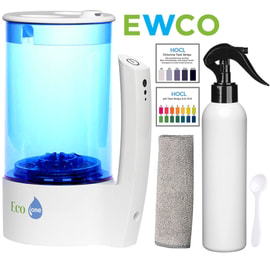How to Fund Your Cancer Treatment
Without a Loan
It's a question almost everyone asks:
“How am I going to pay for cancer treatments?”
If you have been diagnosed with cancer or some other terminal illness and decide to pursue a natural or integrative protocol, traditional insurance policies may not cover the cost of treatments. In this case, there are options to help ensure that everyday financial responsibilities do not become overwhelming.
Big picture, there are different types of costs related to your care — the type cancer treatment, travel costs to see the doctor, food, lodging, medications. It's important to carefully budget for the assistance you may need. Also, don't be short-sighted; your daily life is changing and this will be a long-term battle physically, emotionally, and financially.
Big picture, there are different types of costs related to your care — the type cancer treatment, travel costs to see the doctor, food, lodging, medications. It's important to carefully budget for the assistance you may need. Also, don't be short-sighted; your daily life is changing and this will be a long-term battle physically, emotionally, and financially.
Orthodox medicine treats patients they never should have treated in the first place. They do procedures which often do more harm than good. Furthermore, health insurance policies do not cover the more effective and less expensive natural medicine cancer treatments. The good news is that there are many effective cancer treatments that are inexpensive.
Given the complexity of treating a cancer patient who has been sent home to die, the best natural medicine treatments and clinics come with expert support and are relatively expensive, for example the Cellect-Budwig with High RF Frequency Generator protocol.
However, if insurance does not cover the cost of your treatments, there are several organizations that help people with cancer who are facing financial challenges. One of your jobs is to try and find organizations local to you, that support cancer patients.
Funding Strategies
Frankly, for various reasons, almost all natural or integrative healthcare professionals do not accept medical insurance. However, there are ways to pay for natural or integrative treatments. We have seen patients use a variety of strategies to pay for treatments. Sometimes it’s one or a combination of these:
Home Mortgage
For those owning a home, taking a home mortgage seems to be a significant way to obtain funds to pay for treatments. As one person put it, “It’s my home, I’m paying for it and if it can help me now to remain living in it, why not? If I pass away it won’t matter anymore anyway.” If you can get money out of your home equity, it makes perfect sense to use it to save your life.
Financing
Some patients opt to use 0 percent or low-interest credit cards to get treatments started. Others use companies that specialize in providing loans for healthcare, like Care Credit. It’s like a credit card for healthcare. They have 12-month interest-free options available.
Networking
GoFundMe and Caring Bridge remain strong options. Patient advocates have held yard sales, bake sales, and other fund-raising events. There should be no shame on the part of a cancer patient asking for financial help.
No donation is too large or small. All donations are a gift of love. It’s amazing to find that $20 multiplied by so many hands can cover treatment costs.
Many patients are happily surprised to find there are many charitable people just waiting for an opportunity to help. Others seek out foundations or grants for treatments. We encourage you to research what may be available in your local area.
Health Share Networks
Some already have dumped their medical insurance, learning what doctors know: Medical insurance is sick care, not health care.
Health Share Networks continue to be an exciting ongoing development. Good decent people committing to pay monthly for the healthcare of others and vice versa. Organizations like Samaritan Ministries or Medi-Share have been doing this for more than 20 years with tens of thousands of members paying tens of millions of dollars monthly for healthcare costs, including the cost of natural or integrative treatments.
These are not medical insurance companies. You are signing up to pay a portion (share amount) of a member’s medical bill and they are doing the same for you. The members are interdependent of each other. Pre-existing conditions, like cancer, are not qualified to be included with mandatory monthly share amounts but are provided as additional sharing options to members desiring to help those with pre-existing needs or needs outside of member guidelines. That’s good news.
The better news is that any new member will have their future medical needs that meet member guidelines paid for by its members. Keep in mind, unless they have a different policy, your doctor will still require payment at the time of your consultation or treatment. So any means of payment you use, in essence, would be repaid by you once you receive your monthly share amount.
In the United States, health share networks are excluded from the Affordable Care Act.
Sharing Guidelines may vary (specific exceptions, rules, etc). See individual sites for details.
Life Insurance
A “viatical settlement” is not a loan. This financial product was designed for terminally ill people, whether from cancer or from some other disease or health condition. The purpose of this financial product is so that terminally ill people can enjoy the last days of their life. However, this product can also be used by those who are trying to survive cancer.
Viatical settlements involve the sale of your life insurance policy once you have become chronically or terminally ill. Depending on your type of life insurance coverage and insurance carrier, you may have certain policy provisions within your life insurance policy that allow for an advance of your death benefit. This life insurance settlement option should be explored, especially if you need cash to pay for the high cost of care.
In a nutshell, corporations will buy a whole life policy or term life policy, Group policy, FEGLI policy, Universal life policy, or other types of life insurance policies that can be converted into whole life. Companies will buy these policies, for example, at 50, 70 percent of the face value of the whole life value.
Do not try to sell to your insurance company because you won't get much.
With this transaction, a cancer patient can receive 50, 70 percent of the face value of their life insurance policy. The patient can then afford to spend quality time with their family and friends in any way they wish and/or they can use the money from that insurance policy to try to survive their cancer, such as go to a top clinic or use an expensive home treatment.
Also, not all the person's life insurance policies need to be sold. Only the ones needed to cover expenses. The companies will buy any life insurance policy that can be converted into whole life. … And what can the family do with this money? Anything they want.
While spending more time with the family would justify the transaction, for advanced cancer patients who know about alternative cancer treatment clinics and strong home treatments, they can also use part of this money to try to survive cancer. But there is another benefit: The patient's attitude has a lot to do with survival. By spending more time with their family, and doing fun things, they can take their mind off cancer and this will help the chances of survival.
For example, a $15,000 policy (after converting it to whole life) can be converted to fund the Cellect-Budwig Protocol plus High RF Frequency Generator and oscillator amplifier with plasma ray tube. A $60,000 policy can be converted into funds for implementing multiple treatments plus nutritional supplements and foods. For larger policies, they can travel and/or be treated at a clinic and/or use a home treatment.
So, what are the mechanics of this product?
When you apply for this service there is no obligation to sell your life insurance policy or convert a different policy into a life insurance policy. It is a family decision as to whether to accept their offer or reject it. There is nothing to risk if you are interested in getting a quote.
For example, suppose a terminal cancer patient has a $200,000 whole life insurance policy. The winning bid for that policy is $145,000 (a reasonable amount). If the family accepts the offer, the patient can utilize a powerful home treatment and/or visiting a world-class alternative medicine cancer clinic in the United States, Mexico, or anywhere in the world (and the travel that goes with it).
Some clinics are very good at quickly and safely getting rid of cancer cells, and after treating their cancer and/or visiting a clinic, they can take a vacation (and eat healthy while on vacation). When they get home, a home treatment can be used to “finish-off” cancer and build their immune system. Building the immune system (i.e. curing cancer) can only be done at home because it takes many months to rebuild the immune system.
While every cancer case is different and there are no guarantees the best clinics and home treatments can cure cancer, the time spent with family can more than justify the viatical settlement.
Be Aware:
Do not turn in your life insurance policy to your life insurance company. They will only give you a small fraction of what the policy is worth. Also, some brokers of this product take exorbitant commissions without telling you. In other words, they do not tell you the actual numbers quoted by the companies that buy these products. Ask questions and research before making a financial decision.
There are patients who take out a Reverse Life Insurance policy, also known as life settlements. Life settlements refer to the sale of one's life insurance policy to a third party for an immediate, set sum of money.
One organization offering this is Life Credit Company. If you have a $75,000 life insurance policy, you may qualify to receive up to 50 percent of your policy’s death benefit today. You will never be required to make loan payments or incur out-of-pocket expenses.
Organizations providing Reverse Life Insurance make their money by keeping the balance of your insurance policy upon your passing. Seek professional counsel to determine if this choice is right for you.
Canadian Life Insurance Policies
This is a note from a reader in Canada about using a life insurance policy in that country to fund a cancer treatment:
We have what is called “Living Benefit” where you can ‘cash in’ up to half of your life insurance (to max of $100,000). If you have been given 12 months or less to live (according to your oncologist), you apply to your life insurance company and they send you a cheque (less 1 yrs worth of premiums) to be used for anything you wish. Not ALL insurance companies do this but MOST do.
We did this a year ago and I had to call the life insurance company and explain my husband is still with us and we need to start paying his premiums again so we don’t lose the other half of his life insurance when he eventually does pass.
As soon as you are diagnosed, apply for CPPD (Canada Pension Plan Disability). Cancer is an automatic acceptance. My husband receives over $800/month AND because we didn’t find out about this until 6 months after diagnosis, they went retro-active to when he was diagnosed. We applied at the end of August and his first cheque was in the bank at the end of October along with the retro-active amount.
In Ontario, if your household is low income, once you have been accepted to CPPD, look into ODSP (Ontario Disability Support Program). This program also pays for prescriptions for your dependants and some other health care items such as dental and vision care.
As soon as you are diagnosed, quit your job and go on EI (Employment Insurance). It is called sick benefit and they don’t refute it because they know the standard treatments kick the heck out of you and you will have good and bad days and cannot rely on being well enough to go to work. I believe this is a ‘bridge’ until you start receiving CPPD or ODSP.
If you opt for CPPD and require a home care nurse (full time, part-time or weekly), or are under the care of a dietician (even monthly visits), you can apply for an ODB (Ontario Drug Benefit) card. This card pays my husband’s prescriptions and his liquid food source for tube feeding (he can’t swallow because of the tumor on the back of his tongue). Contact the CCAC (Community Care Access Centre) for information.
Tax Deduction
Talk with your income tax professional to determine what portion or if your entire treatment amount is tax deductible.
Treatment
Local faith-based churches, synagogues, and mosques may help, sometimes even if the cancer patient is not a member of that organization or religion. Catholic Charities USA, Jewish Social Services Agency, Lutheran Social Services, and others may offer financial assistance. Ask about grants to help cover the cost of treatment and other expenses.
There also are national organizations that may help offset costs of treatments:
Housing
If you have to travel to see a doctor for cancer treatment, depending on the protocol, most likely you will need to stay for a few days. If you need help with lodging costs:
Travel
OK, so you have found a clinic — now, how do you get there for the cancer treatment? There are several transportation services that can assist you:
Advocacy
Paying for cancer treatment can weigh on your mind. While focusing on your health, there isn't a lot of time to dedicate to making sure the bills are paid. But you must do it! If you need help charting a course:
Do your homework
Sometimes a patient may travel from one country to another to see a Cancer Specialist. Before talking with a doctor, a financial rep, or anyone associated with your health care, prepare for the meeting: If you feel intimidated, get a family member or friend, to accompany you as your health advocate.
Use Your Life Insurance Policy to Save Yourself.
If you are diagnosed with terminal cancer and you own an insurance policy...You can get money to pay for Great, effective, lifesaving, natural tried and true cancer treatments by reputable, experienced cancer doctors. So, if that diagnosis ever comes, It's NOT a death sentence. Don't allow yourself to be bullied or rushed into any treatments before doing your homework. You have time. Use that life insurance policy to save your life.
You can still leave money to pay for later expenses. You just don't have to give up to cancer or any other terminal diagnosis.
Life Insurance
A “viatical settlement” is not a loan. This financial product was designed for terminally ill people, whether from cancer or from some other disease or health condition. The purpose of this financial product is so that terminally ill people can enjoy the last days of their life. However, this product can also be used by those who are trying to survive cancer.
Viatical settlements involve the sale of your life insurance policy once you have become chronically or terminally ill. Depending on your type of life insurance coverage and insurance carrier, you may have certain policy provisions within your life insurance policy that allow for an advance of your death benefit. This life insurance settlement option should be explored, especially if you need cash to pay for the high cost of care.
In a nutshell, corporations will buy a whole life policy or term life policy, Group policy, FEGLI policy, Universal life policy, or other types of life insurance policies that can be converted into whole life. Companies will buy these policies, for example, at 50, 70 percent of the face value of the whole life value.
Do not try to sell to your insurance company because you won't get much.
With this transaction, a cancer patient can receive 50, 70 percent of the face value of their life insurance policy. The patient can then afford to spend quality time with their family and friends in any way they wish and/or they can use the money from that insurance policy to try to survive their cancer, such as go to a top clinic or use an expensive home treatment.
Also, not all the person's life insurance policies need to be sold. Only the ones needed to cover expenses. The companies will buy any life insurance policy that can be converted into whole life. … And what can the family do with this money? Anything they want.
While spending more time with the family would justify the transaction, for advanced cancer patients who know about alternative cancer treatment clinics and strong home treatments, they can also use part of this money to try to survive cancer. But there is another benefit: The patient's attitude has a lot to do with survival. By spending more time with their family, and doing fun things, they can take their mind off cancer and this will help the chances of survival.
For example, a $15,000 policy (after converting it to whole life) can be converted to fund the Cellect-Budwig Protocol plus High RF Frequency Generator and oscillator amplifier with plasma ray tube. A $60,000 policy can be converted into funds for implementing multiple treatments plus nutritional supplements and foods. For larger policies, they can travel and/or be treated at a clinic and/or use a home treatment.
So, what are the mechanics of this product?
- The patient or family contacts a broker that will find them the best price for their life insurance policy;
- The broker gets three bids from companies that buy life insurance policies (the choice of these three companies for each situation requires experience and expertise);
- The broker then tells the family about the highest bid;
- The family can accept or reject the bid.
When you apply for this service there is no obligation to sell your life insurance policy or convert a different policy into a life insurance policy. It is a family decision as to whether to accept their offer or reject it. There is nothing to risk if you are interested in getting a quote.
For example, suppose a terminal cancer patient has a $200,000 whole life insurance policy. The winning bid for that policy is $145,000 (a reasonable amount). If the family accepts the offer, the patient can utilize a powerful home treatment and/or visiting a world-class alternative medicine cancer clinic in the United States, Mexico, or anywhere in the world (and the travel that goes with it).
Some clinics are very good at quickly and safely getting rid of cancer cells, and after treating their cancer and/or visiting a clinic, they can take a vacation (and eat healthy while on vacation). When they get home, a home treatment can be used to “finish-off” cancer and build their immune system. Building the immune system (i.e. curing cancer) can only be done at home because it takes many months to rebuild the immune system.
While every cancer case is different and there are no guarantees the best clinics and home treatments can cure cancer, the time spent with family can more than justify the viatical settlement.
- Learn more at Life Insurance Buyers Inc.
Be Aware:
Do not turn in your life insurance policy to your life insurance company. They will only give you a small fraction of what the policy is worth. Also, some brokers of this product take exorbitant commissions without telling you. In other words, they do not tell you the actual numbers quoted by the companies that buy these products. Ask questions and research before making a financial decision.
There are patients who take out a Reverse Life Insurance policy, also known as life settlements. Life settlements refer to the sale of one's life insurance policy to a third party for an immediate, set sum of money.
One organization offering this is Life Credit Company. If you have a $75,000 life insurance policy, you may qualify to receive up to 50 percent of your policy’s death benefit today. You will never be required to make loan payments or incur out-of-pocket expenses.
Organizations providing Reverse Life Insurance make their money by keeping the balance of your insurance policy upon your passing. Seek professional counsel to determine if this choice is right for you.
- Learn more about viaticals, life settlements, life insurance loans
Canadian Life Insurance Policies
This is a note from a reader in Canada about using a life insurance policy in that country to fund a cancer treatment:
We have what is called “Living Benefit” where you can ‘cash in’ up to half of your life insurance (to max of $100,000). If you have been given 12 months or less to live (according to your oncologist), you apply to your life insurance company and they send you a cheque (less 1 yrs worth of premiums) to be used for anything you wish. Not ALL insurance companies do this but MOST do.
We did this a year ago and I had to call the life insurance company and explain my husband is still with us and we need to start paying his premiums again so we don’t lose the other half of his life insurance when he eventually does pass.
As soon as you are diagnosed, apply for CPPD (Canada Pension Plan Disability). Cancer is an automatic acceptance. My husband receives over $800/month AND because we didn’t find out about this until 6 months after diagnosis, they went retro-active to when he was diagnosed. We applied at the end of August and his first cheque was in the bank at the end of October along with the retro-active amount.
In Ontario, if your household is low income, once you have been accepted to CPPD, look into ODSP (Ontario Disability Support Program). This program also pays for prescriptions for your dependants and some other health care items such as dental and vision care.
As soon as you are diagnosed, quit your job and go on EI (Employment Insurance). It is called sick benefit and they don’t refute it because they know the standard treatments kick the heck out of you and you will have good and bad days and cannot rely on being well enough to go to work. I believe this is a ‘bridge’ until you start receiving CPPD or ODSP.
If you opt for CPPD and require a home care nurse (full time, part-time or weekly), or are under the care of a dietician (even monthly visits), you can apply for an ODB (Ontario Drug Benefit) card. This card pays my husband’s prescriptions and his liquid food source for tube feeding (he can’t swallow because of the tumor on the back of his tongue). Contact the CCAC (Community Care Access Centre) for information.
Tax Deduction
Talk with your income tax professional to determine what portion or if your entire treatment amount is tax deductible.
Treatment
Local faith-based churches, synagogues, and mosques may help, sometimes even if the cancer patient is not a member of that organization or religion. Catholic Charities USA, Jewish Social Services Agency, Lutheran Social Services, and others may offer financial assistance. Ask about grants to help cover the cost of treatment and other expenses.
There also are national organizations that may help offset costs of treatments:
- Dempsey Center — free support, education, and integrative medicine to anyone affected by cancer.
- Cancer Financial Assistance Coalition — organizations helping cancer patients manage financial challenges.
- CancerCare — limited financial assistance for people affected by cancer.
- HealthWell Foundation — independent, non-profit that helps insured patients with a chronic, life-altering disease afford their medications.
Housing
If you have to travel to see a doctor for cancer treatment, depending on the protocol, most likely you will need to stay for a few days. If you need help with lodging costs:
- Healthcare Hospitality Network — association of more than 200 nonprofit organizations that provide lodging and support services to families and their loved ones who are receiving medical treatment away from home.
- Joe's House — non-profit that helps cancer patients and their families find a place to stay when traveling away from home for medical treatment.
Travel
OK, so you have found a clinic — now, how do you get there for the cancer treatment? There are several transportation services that can assist you:
- Air Care Alliance — central listing of free transportation services provided by volunteer pilots and charitable aviation groups.
- LifeLine Pilots — volunteer pilots who donate their time and all flight expenses to people in need of free transportation for on-going treatment, diagnosis, and follow-up care.
- National Patient Travel Center — information about long-distance travel for cancer patients and their families in need of travel.
Advocacy
Paying for cancer treatment can weigh on your mind. While focusing on your health, there isn't a lot of time to dedicate to making sure the bills are paid. But you must do it! If you need help charting a course:
- Patient Access Network Foundation — focused on ensuring underinsured patients living with life-threatening, chronic and rare diseases get the financial assistance they need.
- Patient Advocate Foundation — provides patients with arbitration, mediation and negotiation to settle issues with access to care, medical debt, and job retention related to their illness.
Do your homework
Sometimes a patient may travel from one country to another to see a Cancer Specialist. Before talking with a doctor, a financial rep, or anyone associated with your health care, prepare for the meeting: If you feel intimidated, get a family member or friend, to accompany you as your health advocate.
- Write down your questions before the appointment. Please don't feel bullied...ASK questions. This is your body, your life.
- Write notes during the conversation or even tape the conversation; most smartphones can record audio. Don't try to remember everything from memory. In your anxious state, you may forget everything.
- If you do not understand something, ask a follow-up question or for a clearer explanation. There are no stupid questions.
- It is your right to seek a second opinion. In fact, you should seek a second opinion! It's unfortunate, but there are doctors who are profiting from giving false cancer diagnosis. It has been happening more that you would ever think. Sad but true.
- Research what a doctor, a financial rep, or anyone associated with your health care tells you.
Use Your Life Insurance Policy to Save Yourself.
If you are diagnosed with terminal cancer and you own an insurance policy...You can get money to pay for Great, effective, lifesaving, natural tried and true cancer treatments by reputable, experienced cancer doctors. So, if that diagnosis ever comes, It's NOT a death sentence. Don't allow yourself to be bullied or rushed into any treatments before doing your homework. You have time. Use that life insurance policy to save your life.
You can still leave money to pay for later expenses. You just don't have to give up to cancer or any other terminal diagnosis.










